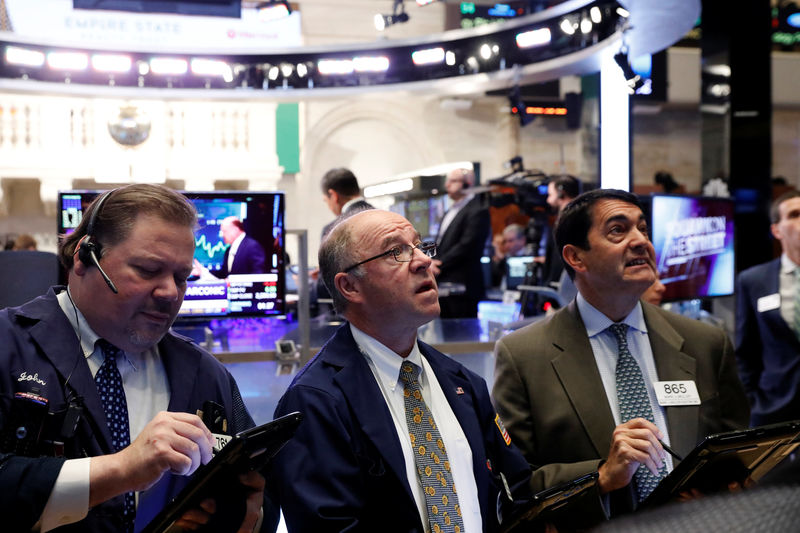By Dion Rabouin
NEW YORK (Reuters) - Major world stock indexes rose on Friday, with U.S. equities closing near record highs, as data showed the creation of more U.S. jobs than expected, while President Donald Trump's executive order to review banking regulations boosted financial sector shares.
U.S. nonfarm payrolls increased by 227,000 jobs last month, the largest gain in four months, but wages increased only modestly, suggesting slack in the labour market.
The Dow Jones Industrial Average (DJI) rose 186.55 points, or 0.94 percent, to close at 20,071.46, the S&P 500 (SPX) gained 16.57 points, or 0.73 percent, to 2,297.42 and the Nasdaq Composite (IXIC) added 30.57 points, or 0.54 percent, to 5,666.77.
"Continued strong job creation is tempered by the renewed sluggishness in wage growth, raising questions once again about the extent to which the functioning of the labour market has evolved," said Mohamed El-Erian, chief economic adviser at Allianz (DE:ALVG) in Newport Beach, California.
The wages data initially pushed U.S. Treasury yields (US10YT=RR) lower, but they reversed that move after comments from San Francisco Fed President John Williams, who said the Fed can prepare to raise interest rates this year without knowing details of any new U.S. fiscal policies because inflation is firming and the labour market looks good.
The Treasury yield curve was the steepest in one and a half months on Friday.
The fall in yields helped the dollar (DXY) erase early losses. In late trading it was little changed on the day, headed for its fourth straight weekly loss.
The greenback has struggled amid concerns about the Trump administration's preference for a weak dollar and focus on trade and immigration policies rather than fiscal stimulus and tax reform. It posted its worst January in percentage terms in 30 years.
The dollar was down 2 percent against the yen
MSCI's all-world stock index (MIWD00000PUS), which tracks bourses in 46 markets, rose 0.56 percent to finish the week marginally higher.
The euro
European stocks gained broadly with the STOXX 600 (STOXX) rising 0.59 percent, rebounding from losses on Thursday. The index was negative for the week as caution about the impact of Trump's policies weighed on a rally in risky assets.
Euro zone corporate earnings have been strong so far and a survey on Friday showed euro zone businesses started 2017 by increasing activity at the same multi-year record pace they set in December, and faster growth in demand suggested the good times will continue.
Oil prices rose after new U.S. sanctions were imposed on Iran. Comments by Russian Energy Minister Alexander Novak that oil producers have cut their output in accordance with a pact agreed in December also helped support prices.
Oil futures added 0.42 percent with Brent crude rising (LCOc1) more than 2 percent for the week.
London copper

Gold